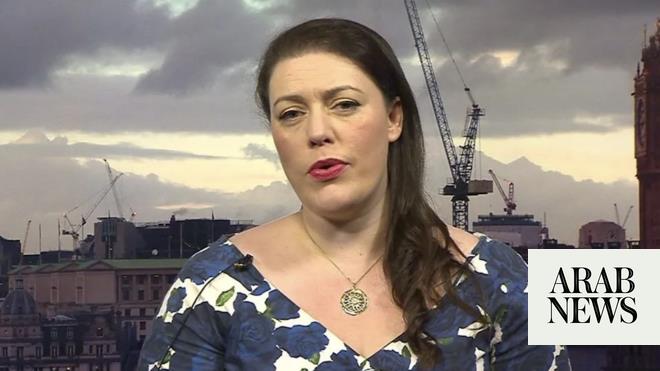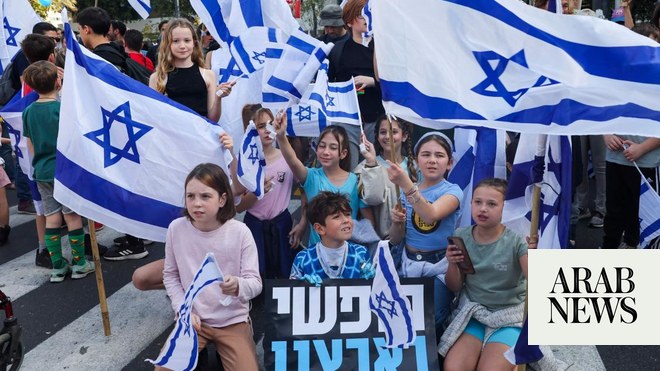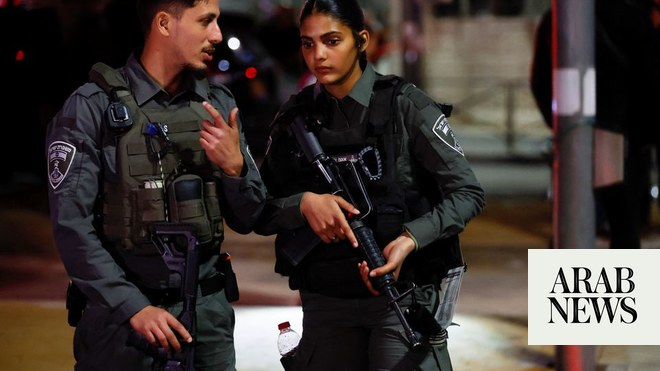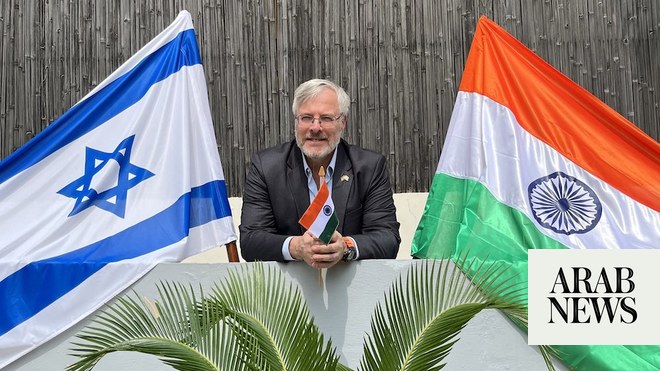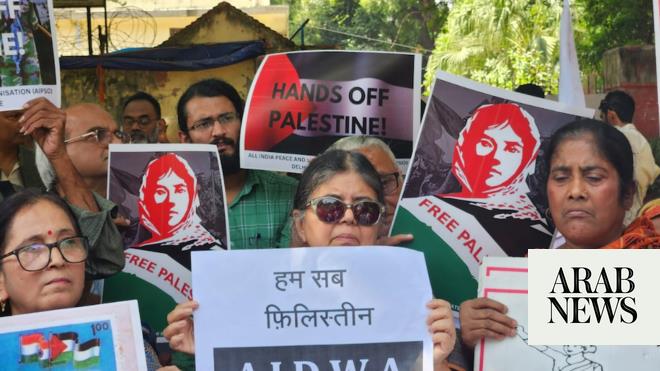
Indian government initially offered support for Israel but later tweaked its response
Activists say Palestinian independence was advocated by India’s founding fathers
NEW DELHI: India’s largest civil society organizations held a protest in New Delhi on Saturday demanding that the government take a firm stand against the latest Israeli onslaught on civilians in Gaza.
Scores of Palestinian civilians are being killed every day in the ongoing bombardment of the densely populated enclave following an attack on Israel by the Gaza-based militant group Hamas last week.
A week into the Israeli offensive, at least 2,215 people, including 724 children, have been killed by airstrikes, the Gaza Ministry of Health said. More than 6,000 bombs have been dropped, it added, with most hitting residential buildings, hospitals and places of worship.
Indian Prime Minister Narendra Modi initially offered unequivocal support for Israel, but the government tweaked its official stance on Thursday, saying it had always backed “negotiations towards establishing a sovereign, independent and viable state of Palestine.”
Despite pressure, it has not yet commented on the situation in Gaza, however.
Arun Kumar, secretary-general of the All India Peace and Solidarity Organization, which organized Saturday’s protest and is one of the oldest Indian NGOs, said that New Delhi’s approach went against its foreign policy and the country’s own historical struggle for freedom. Kumar believes India must make a clear stand and use its position in the UN to exert influence on Tel Aviv.
“So far, India has been maintaining silence on the indiscriminate attack. They have to say that this is wrong. I want this government to take an unequivocal stand against the attacks,” he told Arab News. “Mahatma Gandhi, when he was leading the (Indian) freedom struggle, explicitly stated that as India is for Indians, Britain is for Britons, France belongs to the French, and Palestine to Palestinians.”
There were 15 NGOs represented at the New Delhi demonstration, ranging from rights groups, trade unions, and student and youth associations, to women’s organizations.
“All of them have come together today to condemn the attacks of Israel on Gaza and demand that UN resolutions (on Palestine) be respected. Israel should immediately put a stop to these attacks. Not only that, the pre-1967 borders with East Jerusalem as the capital (of Palestine) and the right to return of the Palestinians to their homeland should be restored,” Kumar said.
“In the G20 meeting, India declared that it is representing the voice of the Global South. If it is really representing the voice of the Global South, it should take an unequivocal position in support of Palestine.”
Maimoona Mollah, one of the most prominent members of the All India Democratic Women’s Association, the largest women’s group in the country, said that her organization denounced narratives portraying Palestinian resistance to Israeli occupation as “acts of terrorism” and demanded that India “stand with the people of Palestine, who have been oppressed for more than 75 years.”
The protesters in New Delhi rallied “against the oppression by Israeli forces, the Zionist apartheid,” Mollah said.
“We have to raise our voice against oppression. India should take a strong stand and say that we belong to the Non-Aligned Movement and therefore we have always supported movements against oppression all over the world and we continue to do so.”
Organizations that did not participate in the protest also joined its call for the Indian government to act.
“India’s foreign policy has always been in favor of Palestine, in favor of freedom for the people of Palestine, and against Israeli expansionism,” said Nilasis Bose, national president of the All India Students’ Association. “The United Nations itself says that people living in Gaza are struggling for food, children are being massacred there by Israel. Then the people of India stand by the people of Palestine, supporting their demand for independence. Indians know the pain of subjugation, so we will always speak against Israel’s aggression.”
India’s initial support for Israel and current silence on Gaza is widely seen as contradictory to the goals of its founding fathers.
Kavita Srivastava, national president of the People’s Union for Civil Liberties, India’s largest human rights group, said it was “shocking” that, in the face of the ongoing siege of Gaza, which has had its water, food, medicine and energy supplies cut, there had been no reaction from the Indian government.
“Mr. Modi has not asked for even the slightest restraint from the (Israel Defense Forces) or (Israeli Air Force) or called for a ceasefire, or simply requested humanitarian aid for the old, infirm, or injured,” she told Arab News. “This goes against what India has stood for in terms of a humanitarian-oriented foreign policy. It also reverses the (Indian) pre-independence vision of Palestine, which Gandhi, (former prime minister Jawaharlal) Nehru and other leaders had envisioned.”
In response to Arab News’ request for comment, Indian Ministry of External Affairs’ spokesman Arindam Bagchi said: “We made our position clear on Thursday. Don’t have anything further to add for now.”




